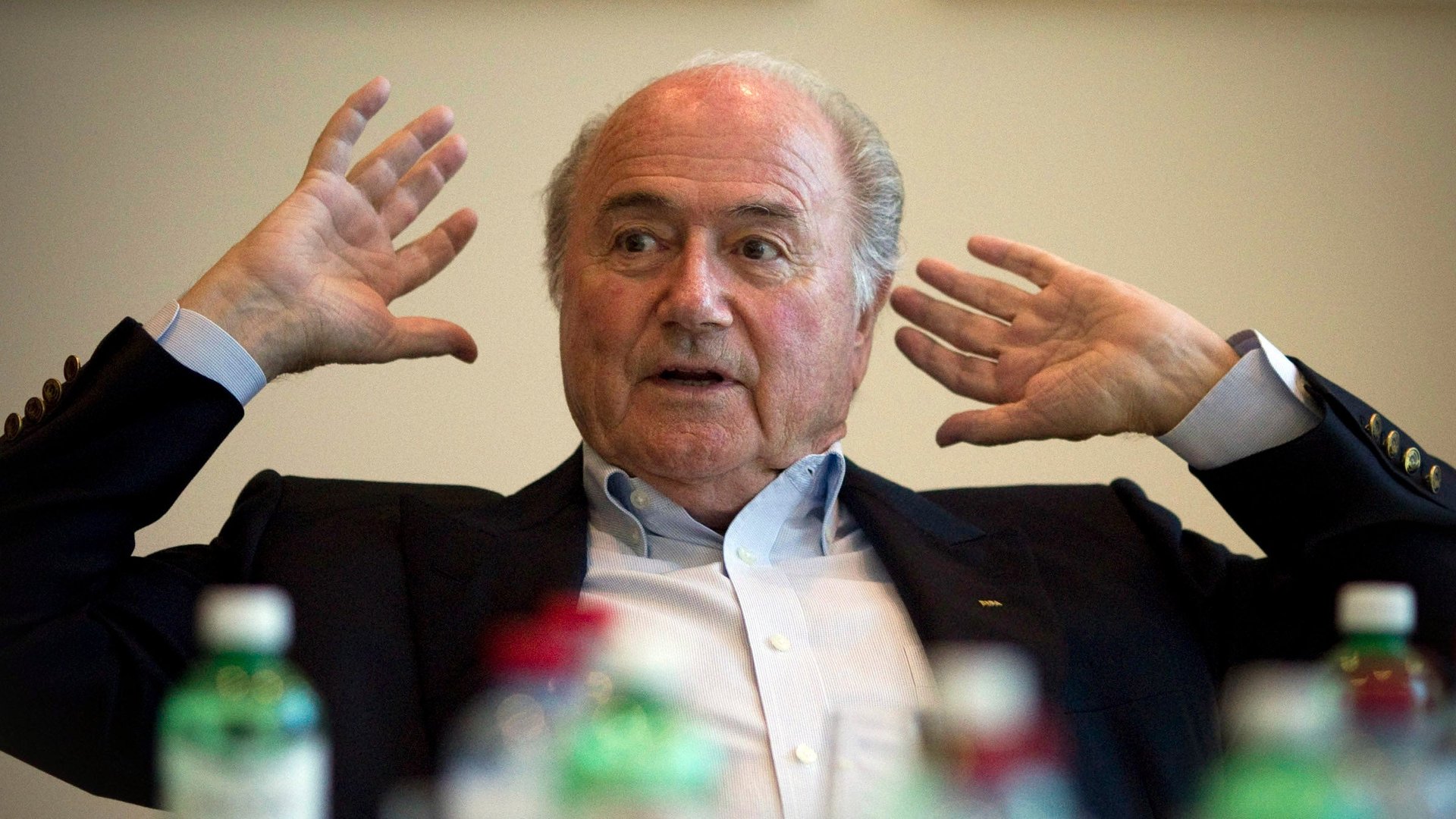What does it take to host the World Cup in 100°F heat?
When it comes to Qatar’s bid to host the 2022 edition of the global soccer tournament, it reportedly takes a lot of untoward influence.


When it comes to Qatar’s bid to host the 2022 edition of the global soccer tournament, it reportedly takes a lot of untoward influence.
France Football magazine has published a new account (French) of Qatar’s efforts to influence officials at FIFA, the global governing body for soccer, that involves former French president Nicolas Sarkozy and his favorite soccer team. (We’d like to apologize to French speakers, on behalf of speakers of American English, that the magazine has chosen to call this “Le Qatargate.“) The full article isn’t available online, but here is a brief English summary of all the shenanigans.
This isn’t the first time allegations of foul play have dogged Qatar’s 2022 bid, or FIFA itself. The country’s delegation has been previously accused, in a report to Britain’s parliament, of directly paying millions of dollars to Africa’s delegation to FIFA in exchange for their votes:
[Former FIFA official Ismail Bhamjee said] “I’m told the Africans will get … anything from a quarter to half a million dollars,” in reference to alleged payments from the Qatar bid to African executive committee members. Asked to clarify whether that money was to invest in football or for them personally, Bhamjee reportedly replied: “No, no, no, no. This is on top. This is separate from the football.”
In the latest account, however, things get complicated. France Football alleges that Sarkozy and Qatari officials lobbied Michel Platini, president of UEFA (the umbrella body for European football) and a FIFA vice-president, to change his vote at a dinner just nine days before FIFA made its final decision. Platini and Qatar vociferously deny this. The magazine links Sarkozy’s lobbying to Qatar’s promises to invest in French football:
During the meeting, the Qataris discussed the possibility that they would buy the football club Paris Saint-Germain and establish a new TV sports channel in France. While the magazine stopped short of alleging a deal was struck at the meeting, it said “all of the elements” were “discussed”.
Oil and gas rich Qatar paid €50m (US$67m) for Paris Saint-Germain in 2011 and last year its state-owned Al Jazeera network created French sports channel beIN Sport.
That would certainly be one way to generate foreign direct investment. Qatar’s sovereign wealth fund also hired Platini’s son, a lawyer. Platini says that he spoke about these meetings two years ago, although the state’s investments have occurred in the intervening time.
However circumstantial all these connections, this new report is just one of many that outlines the conflicts of interest and possible corruption at FIFA and its process for awarding the prestigious and occasionally lucrative right to host the quadrennial soccer tournament. The organization’s long history of shady behavior comes from a structure that allows executives to wring money from sponsors and host nations alike while safely nestled in the bosom of Swiss law.
It’s not just a process problem for FIFA. With temperatures during June and July, when the World Cup occurs, rising above 100°F, it’s not clear if Qatar can put in place the kind of technology it would need to keep players and spectators from overheating, or if the timing of the World Cup will needed to be shifted to December, when temperatures reach a relatively cool 77°F. And even as Qatar struggles to put the infrastructure for the World Cup in place, critics have another concern: The rights of the migrants workers who do much of the country’s work. International labor groups have protested laws that allow for “forced labor” in Qatar, and the publicity around the World Cup will give them a chance to air their grievances more broadly than usual.
Will anything change? It’s unlikely. Sepp Blatter, FIFA’s president, has suggested that the games could be moved earlier to avoid the heat, but not out of Qatar. And with his retirement coming up, he thinks that Platini would be an excellent successor.
As Blatter said after his own election in 1998 came under allegations of corruption, “The match is over, the players have already gone to the changing rooms; I will not respond to this question.”